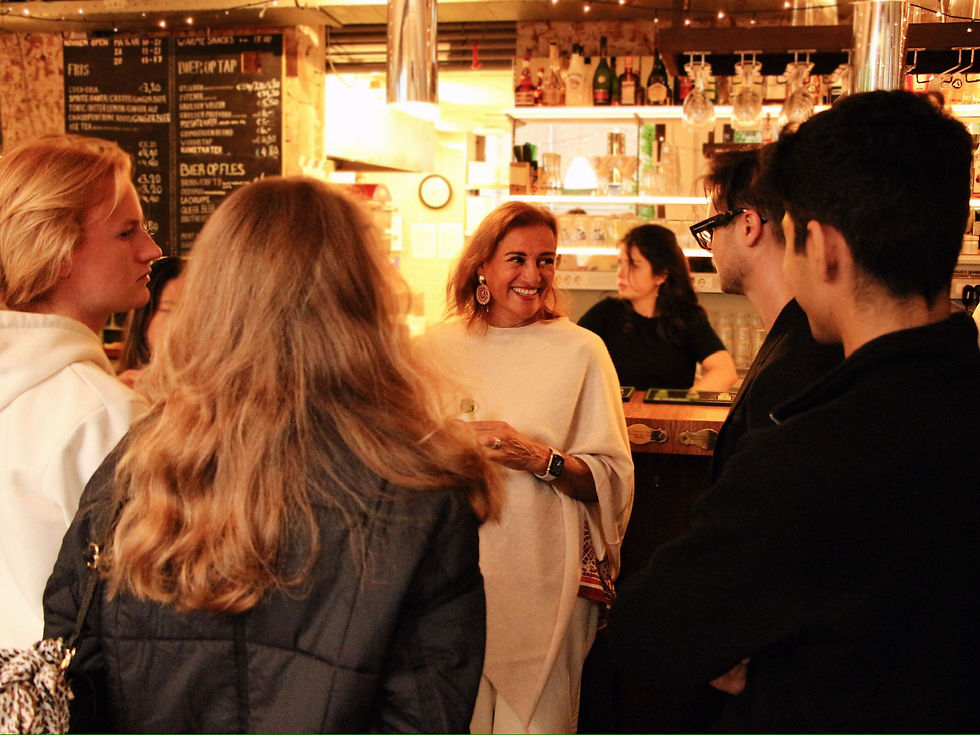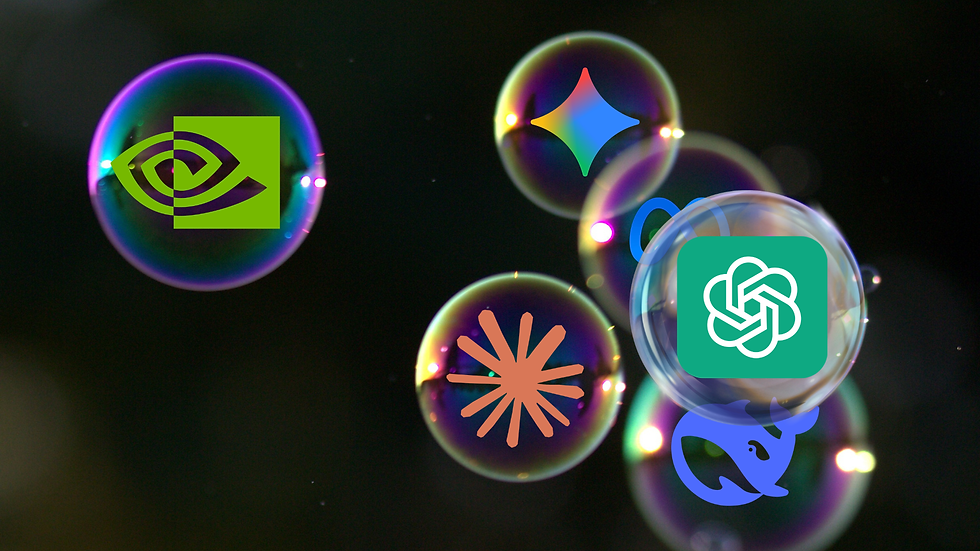AISO - Adapting to the Age of AI: Change, Choice, and What Makes Us Human
- Karina Kalicka-Molin
- Sep 22, 2025
- 4 min read
On Wednesday 10th, former Microsoft Netherlands CEO Anke den Ouden took the stage at the University of Amsterdam to dive into the topics of leadership, navigating a fast-evolving industry, and the role of artificial intelligence in our future. With a background in sports, she holds anything but the typical starting point for a career in technology and corporate leadership. Yet, for Den Ouden, this became the foundation of a path that redefined what it means to adapt, lead, and, more recently, embrace AI’s future. After leaving the Netherlands over two decades ago, she built her career across Germany and Eastern Europe, before returning home in 2017 to lead Microsoft Netherlands for more than three years. Along the way, she reshaped sales strategies during the 2008 financial crisis, led diverse teams across Germany, Poland, Russia, and the Netherlands, redesigning entire systems when existing ones proved insufficient.

Den Ouden’s relationship with leadership can be described as anything but conventional. Her view is that “every single person in the organization is a leader,” a statement that challenges the traditional belief that leadership is tied to hierarchy or title. She sees leadership not as a position above others, but as a practice shared with them. Highlighting that it is all about cultivating trust, transparency, and authenticity across all levels. Working with this approach has not always made her path easy. In Poland, she often found herself treated as an outsider, but she refused to bend to those perceptions. Determined to be taken seriously, she learned Polish and began conducting meetings in the local language, showing both respect for her team and confidence in what she brought to the table. For her, adaptability is not optional but essential, and integrity means staying true to that even in difficult environments. Her persistence proved that results speak louder than doubt. The message is blunt: if you want to lead, you cannot wait for permission. Her principles sound deceptively simple: trust, transparency, inclusion, recognition - but for her, they are non-negotiable.
Navigating through the topics of leadership, innovation, and resilience, the talk turned to a discussion about artificial intelligence. Here, De Ouden shared a perspective that was both encouraging and critical. Citing research from Harvard and Procter & Gamble, she pointed out that teams using AI already outperform those that do not. Yet Europe, and particularly the Netherlands, lags behind the U.S. and Asia in AI adoption. Why? According to Anke, it is the “inherent law of a luxurious life”: when societies become comfortable, curiosity and drive diminish. Emerging economies, by contrast, often leap ahead because they must innovate. Her message is clear and direct - break free from the comfort zone. Using ChatGPT is a start, but it is not enough. The real value lies in becoming builders - experimenting with AI agents, testing them against real problems, and seeing what emerges. Curiosity, she noted, is the engine of innovation at companies like Microsoft, and it is what opens doors to entirely new possibilities. “Don’t chase jobs,” she said, “but build problems worth solving.”

Her reflections on AI were grounded in a longer view of intelligence itself. Drawing on Max Bennett’s A Brief History of Intelligence, she described the five evolutionary leaps that shaped human thinking. Starting moving toward or away from stimuli, learning from reward and punishment, simulating outcomes, understanding others’ minds, and sharing knowledge through language. If AI is to achieve something like general intelligence, it may have to replicate these steps. Ouden did not shy away from the societal consequences either. She warned that overreliance on AI for self-analysis can blur the line between data and truth, raising risks for individuals already vulnerable to stress or mental health struggles. Her reading recommendations - Shoshana Zuboff’s The Anxiety Generation and Bessel van der Kolk’s The Body Keeps the Score - reinforce the point: technology and society are deeply intertwined, and we must remain aware of how tools shape not only our productivity but our wellbeing.
Den Ouden also connected these concerns to her experience as a mother. Many of the dangers she highlighted around brain development and instant gratification, she has seen firsthand in her reflections on raising children. Platforms like TikTok, she noted, thrive on quick-dopamine content, and the addictive pull of such platforms poses risks for younger generations: risks that AI could accelerate if not approached responsibly.
She ended with a reminder: we are the last generation to remember a world without synthetic minds, and the first to shape their future. That responsibility carries both risks and opportunities. Her final message was not about Microsoft, or even AI, but about mindset. Innovation comes not from comfort but from curiosity. And if we want Europe to play a leading role in shaping artificial intelligence, we must be willing to step out of our comfort zones, both as individuals and as a society.
The talk was part of a series of events organized by AISO, a student-driven initiative bringing together people from all backgrounds who share an interest in AI and technology. Europe may lag behind in adoption, but curiosity, experimentation, and collaboration - especially among students - can change that. Her message was clear: if Europe is to lead, it will not be through complacency but through the willingness to build what does not yet exist.








Comments